The United Nations (UN) convened the 2023 Water Conference convened March 22-24, 2023, in New York City. The meeting brought together stakeholders from all over the world to brainstorm how to meet UN sustainability development goals (SDGs) for #6 of the 17 SDGs addressing clean water and sanitation. This event was billed in the words of the conveners, a “watershed moment to tackle the global water crisis and ensure a water-secure future.”
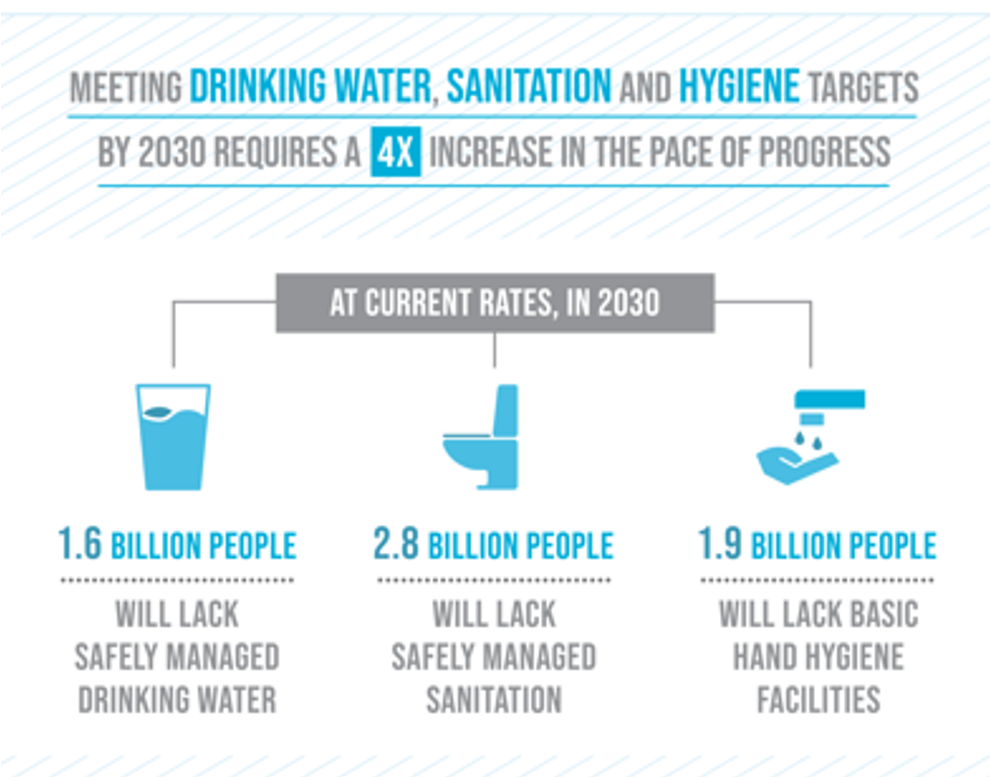
That water-secure future is a critical factor in the well-being for both people and Planet Earth, quantified in the first graphic which sites three key statistics on drinking water, sanitation, and hygiene challenges around the world.
Safe drinking water, sanitation preventing infectious disease outbreaks and epidemics (including available and clean toilets for all peoples’ use), and hand hygiene are basic human needs in our Maslow Hierarchies and social determinants of health.
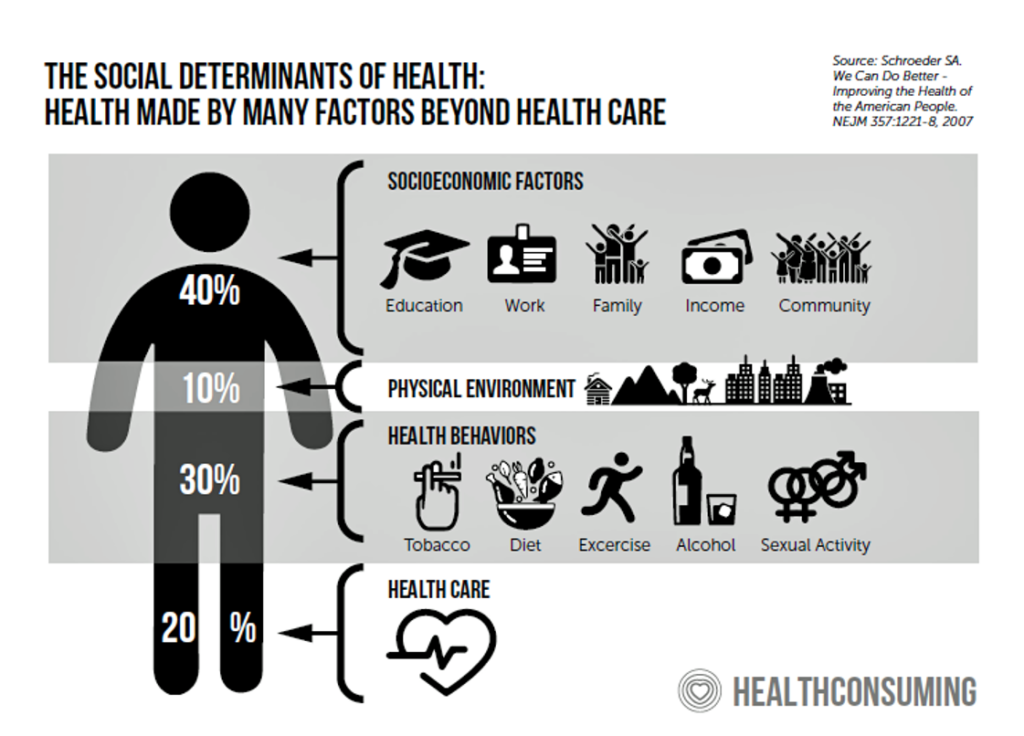
I raised the reality of water as a driver of health yesterday in my talk about the key factors underpinning our well-being yesterday, today, and tomorrow at the Virgin Pulse Thrive Summit, celebrating 10 years of this meet-up that brings together stakeholders committed to workplace wellness and health equity.
Water water everywhere but not a drop to drink (or for washing hands)? The second charge illustrates my take on the classic social determinants of health (SDoH), those factors that shape our health and well-being outside of our DNA’s influence.
Note the category of physical environment: that’s where clean water, clean air, and other of nature’s and the built environment’s health-promoting gifts reside.
The challenge we should have learned from Hippocrates’s observations written over 2,000 years ago is that clean water is key to life and living health-fully.
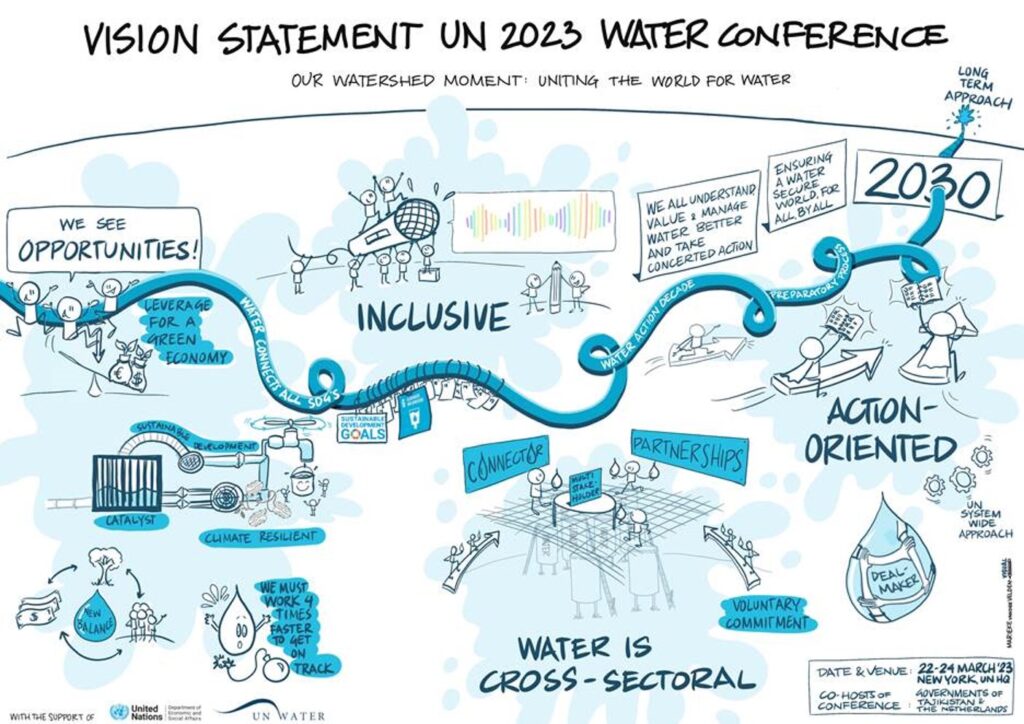
The UN 2023 Water Conference brought together experts, policy makers, and designers to brainstorm the opportunities and solutions for meeting Our Watershed Moment to improve water for the world.
To bolster the action-outcomes of the Conference, 30 teams from around the world gathered to present ideas on how to solve the many challenges facing the future of water.
The gathering-call-to-action was issued by Design for Good (DfG), a private non-profit alliance of some of the biggest companies in the world including General Mills, LIXIL, Logitech, Nedbank, Nestlé, McKinsey & Company, Microsoft, PepsiCo, Philips, and Royal College of Art. With their cross-sectoral industry interests and objectives, the group came together to convene design-thinking people to envision, develop, and help scale solutions to the U.N.’s SDGs.
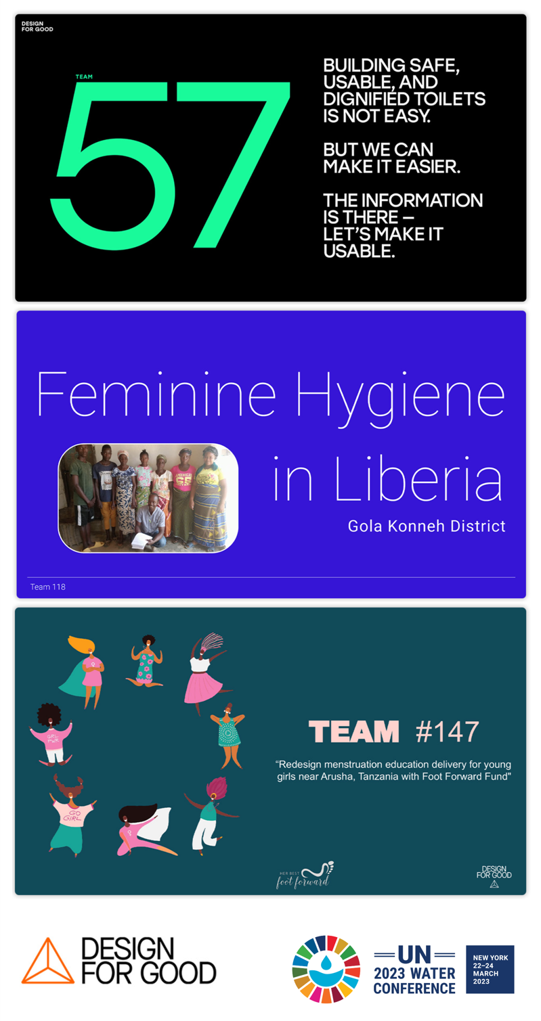
A key objective of the effort is to make the teams’ solutions available via open-source and license-free to communities who can benefit from these programs.
Thirty projects were featured in the Design for Good program. During their ideation and fleshing out of the projects, the teams had the opportunity to benefit from the founding organizations’ and NGOs’ design leaders to help inform the strategies. Going forward, the solutions seen as most practical and scalable will be supported through Design for Good’s member companies, the NGOs, and their networks of potential funders and partners.
I had the opportunity take a look at some of the 30 project proposals, and was struck by their creative approaches to articulating the various water-challenges and their proposed solutions. Of course, designers who adopt user-centered principles have the best chance of channeling the needs of the people for whom they seek to solve real-world, day-to-day problems.
My favorite ideas looked at three very different issues, all of which I often cite in terms of key drivers of health for various populations living in particular circumstances:
- Period poverty
- Toilet access, and,
- Hygienic water and sanitation availability.
All three of these are key drivers of health and impact people all over the world — foremost for people living in emerging economies, but also for millions of people in pockets of some of the wealthiest nations, as well.
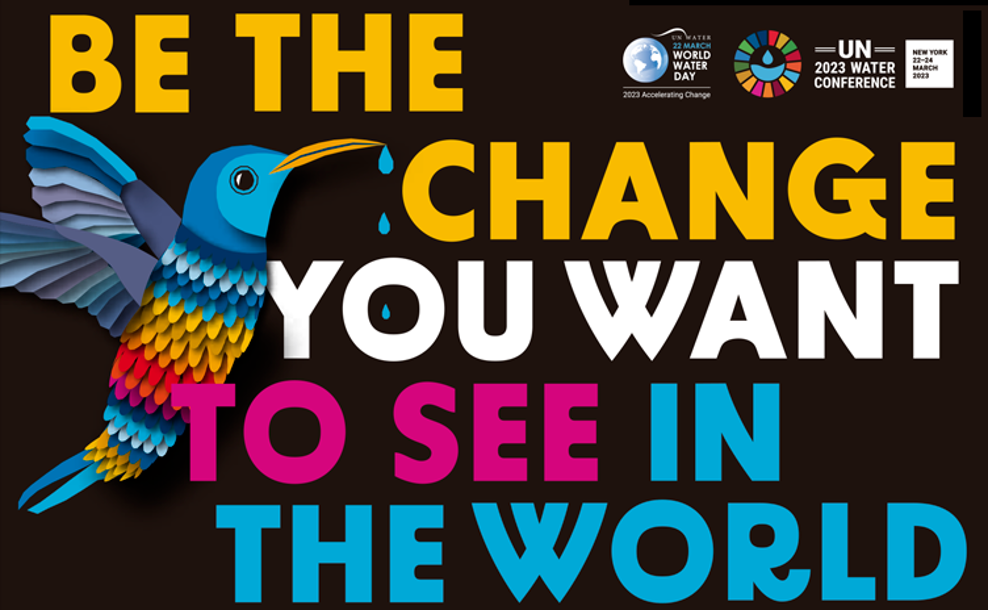
Health Populi’s Hot Points: As we continue to assess the toxic side-effects of the COVID-19 pandemic, a key learning has been a realization among people outside of the public health community that many basic needs and resources taken for granted are not evenly distributed. Among these were Wi-Fi and connectivity, caregiving resources and “bandwidth,” and some of the classic social determinants of health: especially food security.
With the growing understanding and appreciation for the drivers of health beyond medical care, we turn to the role of water for health and well-being.
As an example of the potential impact of the Design for Good program, I see Team #57’s research into the world’s first design standard for toilets as one of these scalable, fundamental projects that addresses a topic that may have taboo around it while also solving for a major need for sanitation in much of the world. This team was mentored by folks form McKinsey, Nestle, PepsiCo, Philips and the Royal College of Art, partnering with the World Toilet Organization.
It is easy to not think about the impact of water in our daily life, taking for granted our own workable toilets, hygienic infrastructure on our communities, availability of drinkable water.
Yet in my home/birth state of Michigan, with an economy roughly the economy size of Sweden, there continue to be issues and questions with the quality of water in the city of some 80,000 health citizens.
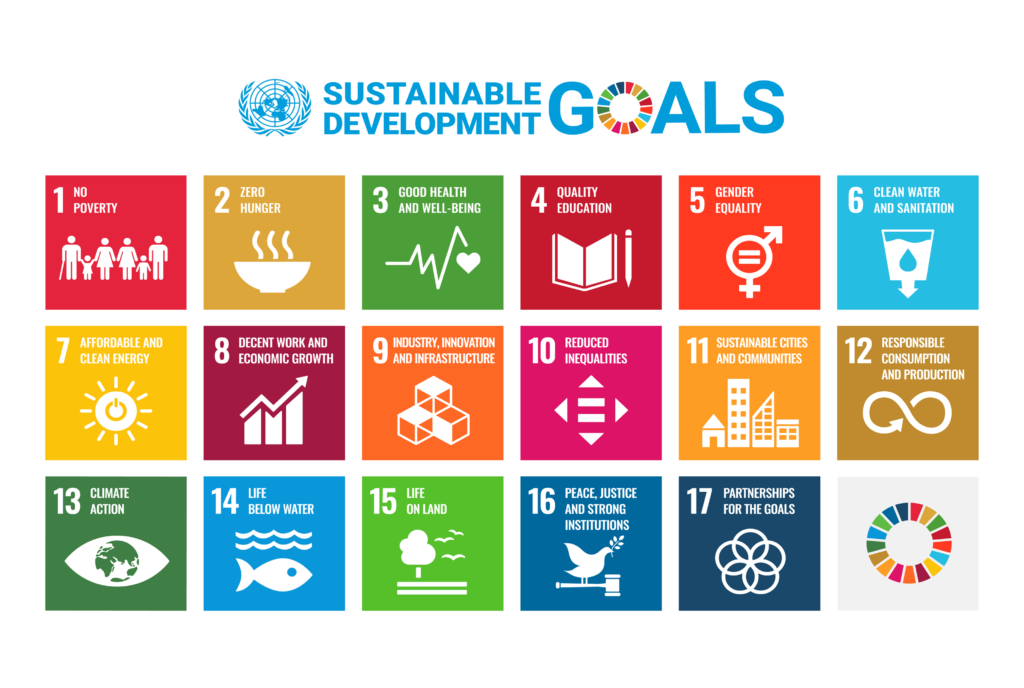
The Design for Good effort has brought together some people who are endeavoring to be the change they want to see in the world. I’m inspired by the effort, and already have some ideas for a few SDoH programs I’ll be calling on my design-thinking friends to brainstorm around other UN SDG goals in my health/care wheelhouse — especially on food and hunger, gender equality, work and economic growth, reducing inequalities, climate, health and — on many of our minds right now — peace and strong institutions.
Onward.


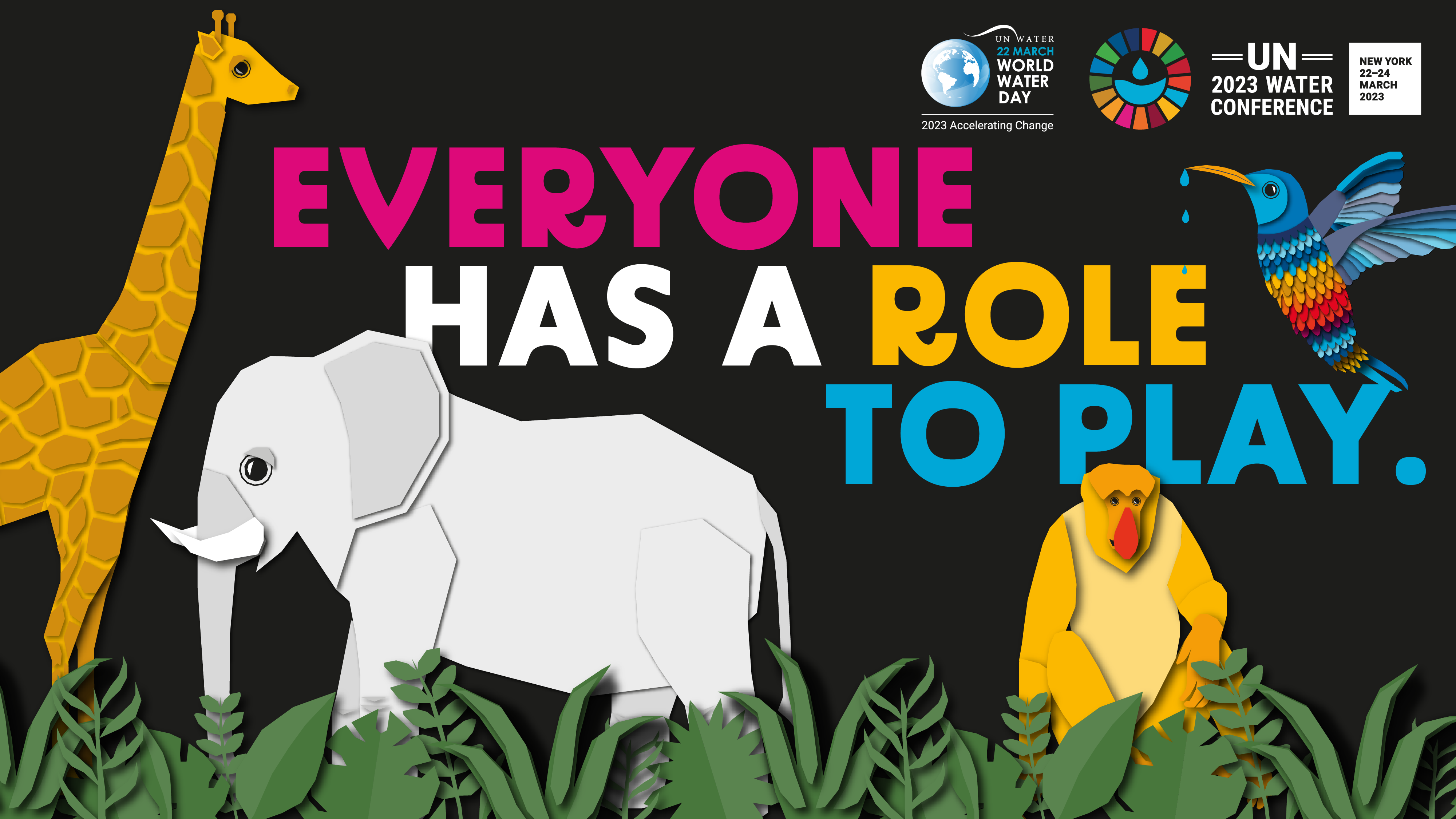


 Interviewed live on BNN Bloomberg (Canada) on the market for GLP-1 drugs for weight loss and their impact on both the health care system and consumer goods and services -- notably, food, nutrition, retail health, gyms, and other sectors.
Interviewed live on BNN Bloomberg (Canada) on the market for GLP-1 drugs for weight loss and their impact on both the health care system and consumer goods and services -- notably, food, nutrition, retail health, gyms, and other sectors. Thank you, Feedspot, for
Thank you, Feedspot, for  As you may know, I have been splitting work- and living-time between the U.S. and the E.U., most recently living in and working from Brussels. In the month of September 2024, I'll be splitting time between London and other parts of the U.K., and Italy where I'll be working with clients on consumer health, self-care and home care focused on food-as-medicine, digital health, business and scenario planning for the future...
As you may know, I have been splitting work- and living-time between the U.S. and the E.U., most recently living in and working from Brussels. In the month of September 2024, I'll be splitting time between London and other parts of the U.K., and Italy where I'll be working with clients on consumer health, self-care and home care focused on food-as-medicine, digital health, business and scenario planning for the future...